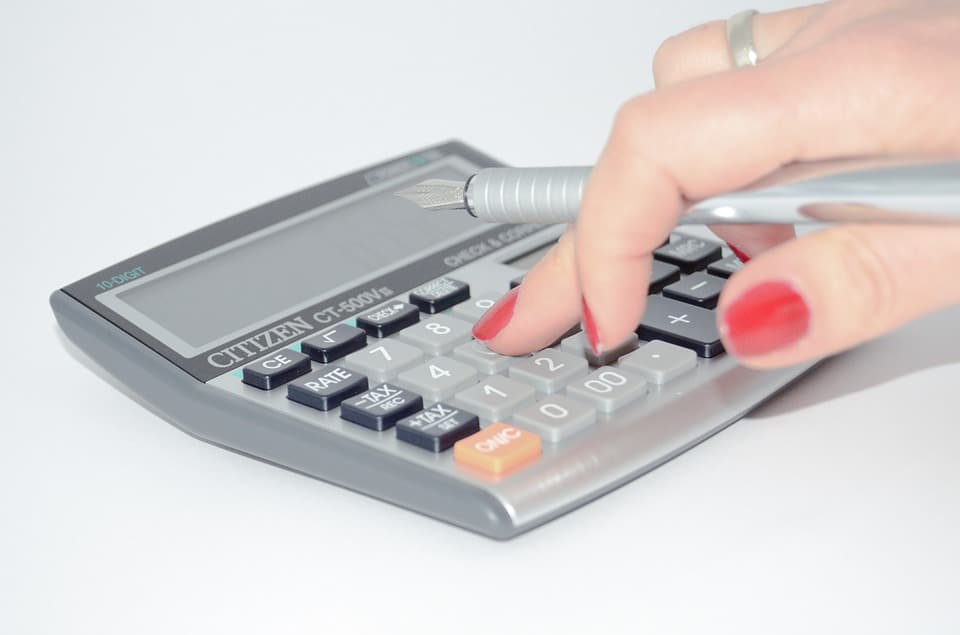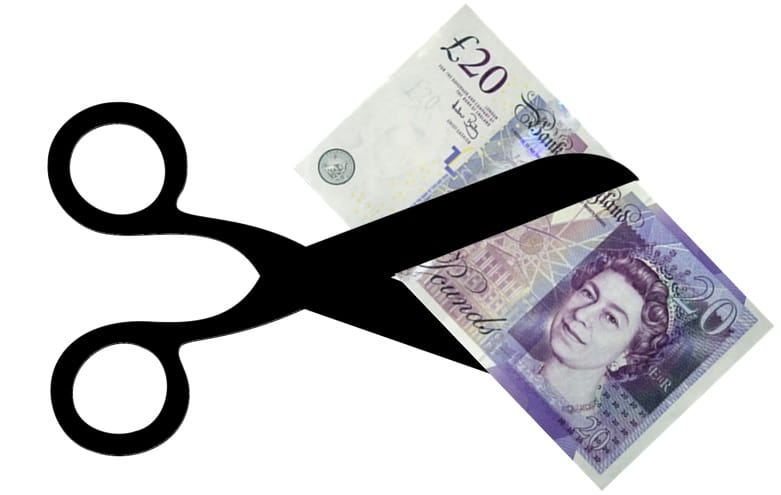Jasmine Birtles
Your money-making expert. Financial journalist, TV and radio personality.

Are you over 55 and in debt? Are you worried you’ll retire before your debts are cleared?
You’re not alone. Almost half of over 55s are struggling to clear debts before retirement, according to a survey by the Debt Advisory Centre.
Fortunately there are steps you can take to clear your debts in time. Read on to find out what they are, and set yourself on course to a debt-free future.
So, how much do you owe?
The chances are that there are some fairly large figures involved. A study by Key Retirement in 2018 looked into non-mortgage debts among people aged over 55, and found an astonishing level of borrowing. Those aged between 55 and 59 who are in debt have an average of over £13,000 on their credit cards, £12,500 in loans, an overdraft of £2,500, and £16,500 in other borrowing. This gives them more than £44,500 in non-mortgage debt. Those aged between 60 and 64 had over £51,000 in non-mortgage debt, and those aged between 65 and 69 had borrowed £50,000.
Regardless of what you owe, however, there is hope that you can beat your debt. Follow our guide to find out how.
Firstly, we recommend you sign-up to our free money-saving newsletter.
Every week we give you tips to bring in a bit of extra cash, offering tips, useful information and support. You never know, the extra income could set you on the path to clearing up your debt more quickly than you could have anticipated.
It’s a free money-making action plan delivered direct to your inbox, so sign up now.
We also have a specific, newly launched debt action plan newsletter, that offers a seven-week guide to getting yourself debt-free. You won’t want to miss this, so make sure you sign up here.
If you’re planning to retire soon, the first question is whether you need to delay your retirement in order to pay off your debts. That, or whether it’ll be manageable to retire whilst you still owe money.
Our advice is to clear your debts first. It may not be what you want to hear, but retiring usually means a lower fixed income, which could make it harder to make debt repayments without overspending. Retiring whilst in debt will still mean you need to pay back the money you owe, but with less money with which to do so. That’s not a situation you want to find yourself in.
It’s not all bad…
There are some real advantages to putting off retiring for a few years.
The first thing you need is a debt reduction plan.
To get started, draw up a list of all your monthly incoming payments. Include wages, investments, benefits, alimony, etc. You should do this on a spreadsheet.
If some of the amounts vary every month, then use the amount from the worst case scenario, i.e. the lowest possible amount of money coming in.
Next, list all your monthly outgoing payments, e.g:
It’s likely you’ll need to think carefully about your budget as part of this process. You can get advice on this here, and be honest with yourself! This time, use amounts from the highest possible payment scenario.
If you’re not sure how much you spend, you should create a spending diary and note down everything you spend over the course of the month. You might be surprised at just how much you can cut back.
When all is done, don’t panic if you have more outgoing money than incoming. It’s what you should expect. If this wasn’t the case, you probably wouldn’t have ended up in debt in the first place.
Next you need to decide which of your outgoings are ‘inflexible’ and which are ‘flexible’.
Those that are ‘inflexible’ should include payments that cannot be changed and are vital to the running of your home. These might include your mortgage or rent (although negotiations on mortgages for a payment break can sometimes be made). Also consider council tax, TV licence, child support payments, etc.
‘Flexible’ payments are those that you can cut back on or go without for a short period of time. This might mean spending less on food, and cutting back on clothes, entertainment, or travel.
It’s easy to get in the habit of not taking much notice of the utility bills and bank statements we are sent. In fact, you might have been tempted not to open them at all.
Really, though, you need to get on top of these so you’re in control of your finances. Sort through all your letters and create a filling system. A simple system such as ‘paid bills’, ‘unpaid bills’, ‘statements’ and ‘income’ should suffice.
It’ll probably turn out to be a lot less stressful than you expect and. You never know, you may find a mistake that means you’re owed a bit of money!
If you’ve been borrowing on credit cards or store cards, you can cut back on your monthly interest by transferring the balance to a card with lower interest rates (assuming your credit record is good enough).
Then, if you can, switch to a 0% deal to give yourself an interest payment break. Meanwhile, you can concentrate on slowly repaying the actual balance. Unfortunately most 0% cards charge a transfer fee (usually around 2.75% of the amount you are transferring onto the card). You’ll need to work out if it is worth it in the long term.
It may be better for you to switch to a card with a low lifetime balance transfer offer. This is where you pay a low interest rate for the whole time you are paying off the debt. Unlike the 0% deals, which are for a fixed amount of time, you won’t have to keep changing cards with this type. It could be better for you, so check out what’s on offer here.
A personal loan is usually the next cheapest way to borrow money, after the best credit card deals. You have to make regular repayments over a fixed amount of time. Read our article to see if a personal loan is right for you.
We usually advise against taking out a secured loan, which leaves you at risk of losing your house. However, you could consider it if you absolutely trust yourself to make the repayments (this is really, really important!). Secured loans are generally cheaper than unsecured ones, but they are more dangerous.
See our article on unsecured and secured loans before making any decisions.
How long have you had your mortgage? If the fixed-rate or introductory period has expired, the chances are you’re shelling out far more than you need to. As mortgage payments are likely to be your single biggest expense, it’s definitely worth keeping on top of it.
Before you try to remortgage, it’s a good idea to contact your existing lender to make them aware of the fact you’re considering making a switch. They might even offer you a cheaper rate.
It’s then a case of tracking down the cheapest deal you can get. Start by looking at our independent comparison table.
Remember to take into account any exit fees from your old lender, and entry fees for your new lender, to get the true amount you will pay or save by switching.
It may seem tempting to get a bigger mortgage, and use some of the cash to pay off your existing debts.
Beware, though: this is not a decision to be taken lightly and should only be carried out if it’s ultimately going to save you money. Remember that adding all your unsecured debts (credit cards/loans etc) to your mortgage increases the risk of losing your home because of the amount your loan increases by.
Read our article about remortgaging your home to pay off your debts to help you make a better informed decision.
Look back at your ‘flexible’ payments and see  where you might be able to make some cutbacks.
where you might be able to make some cutbacks.
Be ruthless with your spending. Remember, it’s only until you’re back on your feet. Make yourself a packed lunch instead of buying one, ask yourself if you really need another coffee, set limits on the amount you’ll spend on a night out, buy supermarket own brands, and so on.
Read our 15 ways to make money by not wasting money for more ideas.
Even though creditors might feel like the enemy, if you contact them and explain that you have a plan to pay them back, most will be reasonable. After all, reclaiming property and possessions through the courts is costly, so they’d rather sort it out another way.
Write them a holding letter, asking them to freeze the interest and to hold off on repayments. As long as they can see you have a repayment strategy, they should be willing to do this.
Remember, nothing bad can come from calling your creditors to let them know your situation. Debt can build up if you just ignore them.
Whilst you’re in financial hardship, the last thing you want to be doing is missing out on money that you can rightfully claim for.
Use an online benefits calculator, like the one on Age UK’s site, to find out what help you’re entitled to.
Also, don’t forget to read our benefits for the over 60s article so you know all the help, freebies and discounts you’re entitled to.
There are some big decisions you could take about your property that may help your situation.
Melanie Taylor, a debt expert at the Debt Advisory Centre, says: “Another alternative is to downsize your house so you have lower costs and can use the extra cash to clear your debts.
“Or, if you are over 55, you could use an equity release product to free-up some value from your property to repay debt. You can take the money as a lump sum or as several smaller chunks of cash.”
If you’re interested in equity release, read this piece that details what it could offer you.
There are some drawbacks. For example it can be quite complicated and might affect what state benefits you get. It could also mean your children end up with a smaller inheritance. All these things needs to be considered, but they don’t automatically mean equity release won’t work for you.
Debt is a real problem in this country, but luckily there are a lot of free organisations set up to help people through it.
If you’re struggling, you don’t have to do it alone. Get in touch with one of the below charities and they’ll talk you through the best next steps, including how to talk to creditors.
They are often very busy, so you may have to persevere to get through. But it’s worth it if you need the help.
If you’re really anxious about contacting creditors, some charities will even talk to them on your behalf.
Some good organisations include:
Whoever you turn to, make sure the advice they’re offering is free and that they’re a registered charity. Some companies out there will be trying to make money from you.
Are you over 55 with no savings? Maybe you were but managed to get yourself out of debt? Let us know your story in the comments below. We’d love to hear from you.

Useful debt advice.